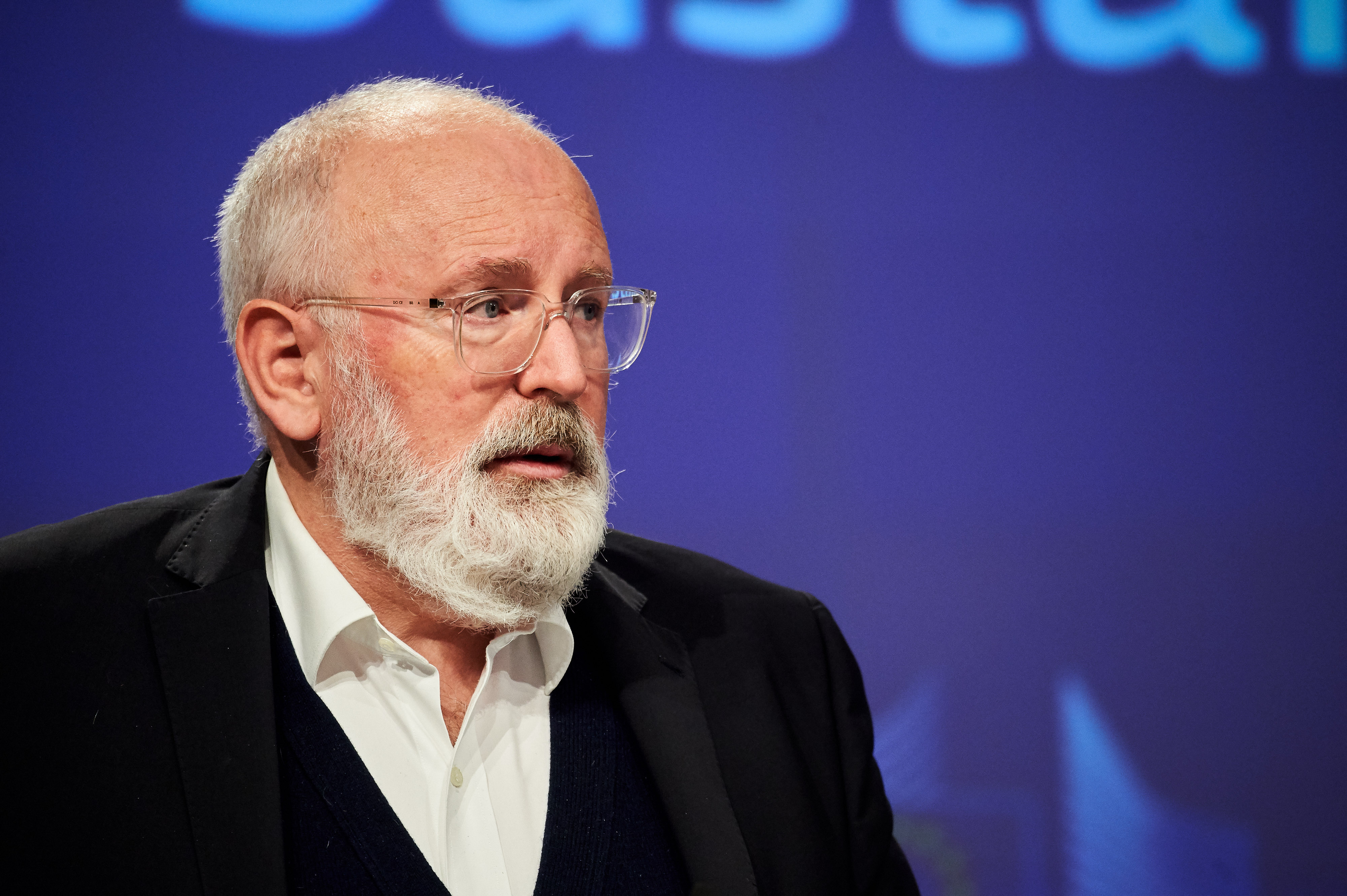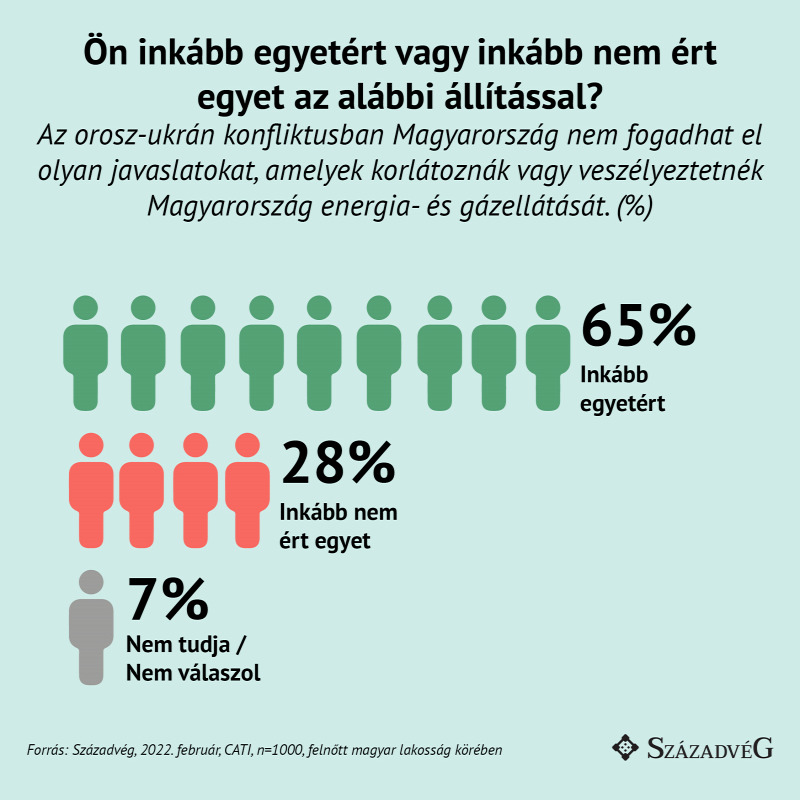
Timmermans: Turn down the heating, so Russian gas can be shut off
According to EU Commissioner Frans Timmermans, Europeans can help in the fight against Vladimir Putin by turning down the heating in their homes, i.e. shivering with cold. The Dutch Socialist politician's position is eerily echoed in statements made by Hungarian left-wing politicians, the news portal Origo points out.
On 8 March, Frans Timmermans, European Commission Executive Vice-President and Commissioner for the European Green Deal, stated in Brussels that
Europeans can help in the fight against Vladimir Putin by turning down the heating in their homes,
The Guardian wrote.
It is hard, bloody hard. But, it is possible. We can do it, and we can do it fast, the Dutch leftist politician added. All we need is the courage and the grit to get us there. If ever there was a time to do it, it is now. Your choices in how much energy you consume decide how strong we are in our reaction to Russia, Mr Timmermans said in the conclusion of his monologue.
The commissioner’s statements are not only extremely irresponsible and out of touch with reality but are also eerily similar to statements made by Hungarian left-wing politicians, the Hungarian Origo news site points out.
The portal notes that Mr Timmermans, who regularly consults with George Soros, is also one of the main supporters of the Hungarian Left. In 2019, he even paid a visit to the country to throw his weight behind leftist candidates in the EP election campaign.
This relationship has remained unbroken ever since. MEP Klara Dobrev, ex-prime minister Ferenc Gyurcsany’s wife, disclosed that she had met Mr Timmermans on Wednesday morning in Brussels to discuss what sanctions to impose on Russians and how to reduce dependency on Russian gas. Ms Dobrev told ATV’s programme Straight Talk (Egyenes Beszed) about the meeting. It is no wonder that Mr Timmermans’s and the Hungarian Left’s rhetoric is so uncannily identical.
Budapest Mayor Karacsony and his allies would turn off Russian gas
On 1 March, Olivio Kocsis-Cake, a politician of the Dialogue party and a candidate supported by Gyurcsany, told ATV’s Start programme that in his view, Russian gas flow to Hungary must be shut off.
The leftist MP first said that sanctions should be extended to include energy carriers, even if this increased energy prices further. “If in order to achieve this [i.e. peace – ed.], sanctions must be imposed on energy carriers, which Russia then applies, then this step must be taken,” he stressed.
Later in the show, Mr Kocsis-Cake went even further about Russian gas by saying,
„this source must be shut off, it must be closed, because it provides them with a source of money to wage wars and attack an independent country.”
The vast majority of Hungary’s gas supply comes from Russia, and this energy source is largely used for heating, so if the measures proposed by the opposition politician were to be implemented, Hungary’s population would face serious difficulties.
Nearly two-thirds of people would not like to see Hungary’s energy and gas supplies at risk
Following the statement about Russian gas supplies made by the candidate on Gyurcsany’s list for parliament, Szazadveg Foundation asked Hungarians their opinion on restrictions and the jeopardising of energy and gas supplies.
Their findings revealed that nearly two-thirds of those asked (65 per cent) were opposed to Hungary adopting proposals that would restrict or threaten the country’s energy and gas supplies, and a mere 28 per cent would agree with such decisions.

The European Union announced unified sanctions against Russia in the wake of the Russia-Ukraine conflict. On 2 March, Hungarian Prime Minister Viktor Orban specifically emphasized that sanctions do not extend to the area of energy so Hungary’s energy supplies remain secure.
Besides secure energy supplies, Russian energy imports also guarantee that Hungarians will continue to pay the lowest utility bills in the European Union, as the country’s utility cost reduction scheme is based on cheap gas from Russia.
85 per cent of all gas consumed by households in Hungary comes from Russia and Hungary produces fuel from oil, 64 per cent of which is also sourced from Russia. At a meeting with European Council President Charles Michel on 8 March, PM Orban made it clear that Hungary cannot follow the example of the United States.
„They imposed sanctions on these products yesterday, but if Hungary joined those sanctions, it would be an unbearable burden for the country, so it is out of the question. We still need gas and oil, which come from Russia,”
the Hungarian premier explained.
Olivio Kocsis-Cake is not the only leftist politician who attacked low utility prices. Peter Marki-Zay, the Left’s prime ministerial hopeful took the utility bill reduction scheme into his crosshairs when last April, the politician said the following about the scheme relying on cheap Russian gas,
“You can cut bills, of course you can: use less water, use less electricity, use less gas.” In November 2021, he stated that the trouble with these irresponsible steps, like the utility bill reduction, is that they are very easy to promise and give, and extremely difficult to revoke.
The Hungarian economic paper Vilaggazdasag wrote that at the „debate” of the lefitst prime ministerial candidates last October, Mr Marki-Zay clarified that he did not find any social component justified in fuel prices.
“In order to make the economy sustainable, we have to feel the increase in energy prices – the externalities that we are imposing on consumers, because in the end everything is imposed on the consumers, of course [formally] the emitter, but that will be built into the price.” So, in his opinion, people must feel the increase in energy prices in their wallets.
It is worth noting that not only the utility bill reduction scheme is based on cheap Russian energy sources, but, for the most part, so is the fuel price freeze recently introduced in Hungary.
The latter is mainly due to the lower-priced crude oil from Russia.
In stark contrast to the position of Peter Marki-Zay and Olivio Kocsis-Cake, Leftist German Chancellor Olaf Scholz stated in a statement on 8 March 2022:
The oil and gas coming from Russia is „of paramount importance” to the European economy. The German leader said it was the only way to ensure heating, mobility and electricity supply.
According to Scholz, although it is an urgent task for the EU to find alternatives to the dependence on Russia, it „will not happen overnight”.
That is why it is a conscious decision on Germany’s part to continue the business cooperation with Russia regarding energy supply, the German chancellor explained his country’s position.
Besides Germany, Italy is another EU member state which is very exposed to Russian energy imports, but the Hungarian government also opposes the inclusion of energy issues under the sanctions, the Hungarian Mandiner paper wrote based on an article by Politico.
The Federal Association of German Industry BDI also rejects the extension of sanctions to the Russian energy sector
The BDI is in close cooperation with all incumbent governments. Speaking to the ARD public television channel, BDI President Siegfried Russwurm emphasized, that the loss of Russian natural gas, oil and coal supplies would have a severe impact on the German economy and jeopardise the competitiveness of the industry.
The debate about an oil embargo against Russia is like playing with fire,
BDI’s president stressed, calling the expected consequences of a possible embargo dramatic.
Halting imports of Russian energy would be a more severe punishment for Germany and the entire EU than for the aggressor Russia because it is impossible to replace those sources overnight and to switch to another source, explained the head of the most prestigious employer union in the EU’s largest economy.
Hungarian Left demands stopping the expansion of the Hungarian nuclear power plant at Paks
Left-wing politicians in Hungary have also demanded halting the expansion of the nuclear power plant facility in Paks. On 24 February, Peter Marki-Zay called on the government to back down from the Paks II project to sanction Russia.
On 5 March, MEP Katalin Cseh of the left-wing Momentum party, indirectly suggested that anyone who wants Hungary to stop the Paks II project should vote for the left. Cseh added the project itself should also be banned.
However, there is no alternative to the electricity generated at the Paks plant.
According to Hungary’s Ministry of Innovation and Technology (ITM), if the electricity put out by the Paks power plant had to be procured from the open market, the utility costs for families would increase fourfold (based on pricing from 28 February 2022).
This means that the annual utility costs for Hungarian families, calculated at 92,147 forints (about EUR 242) would increase by 264,564 forints (about 696 euros) to 356,711 forints (about 939 euros).
The ministry’s calculation is based on a household with two children living in a detached family house which uses gas for heating and hot water production.
Tags:

